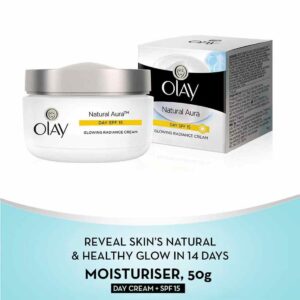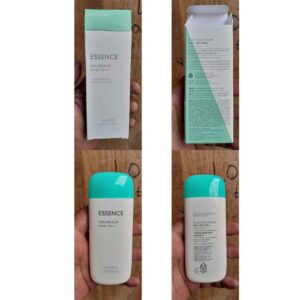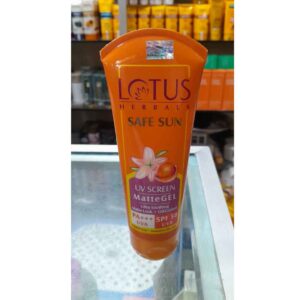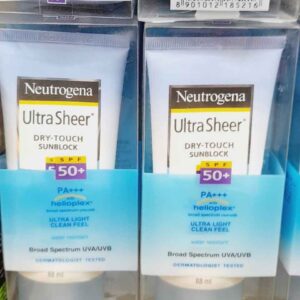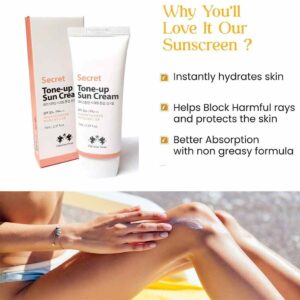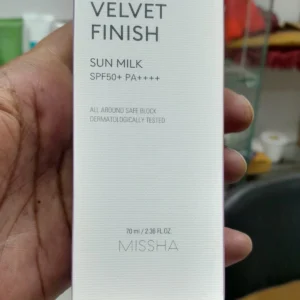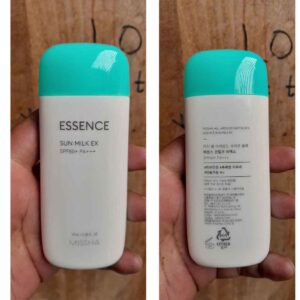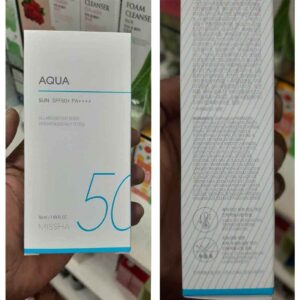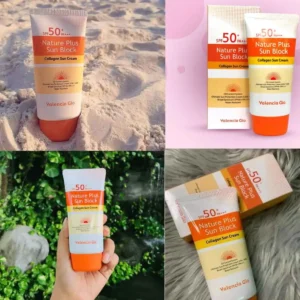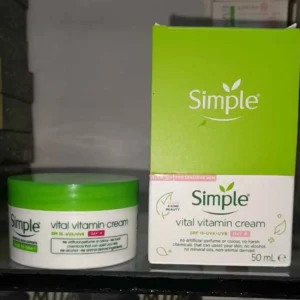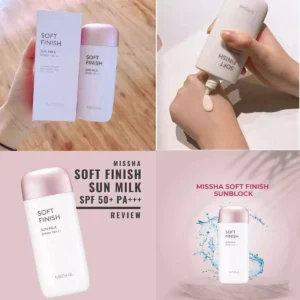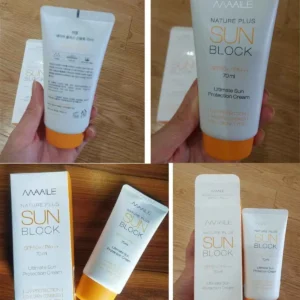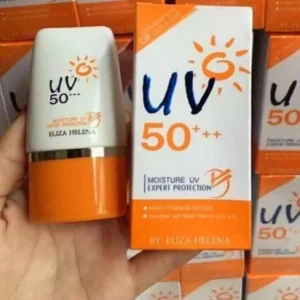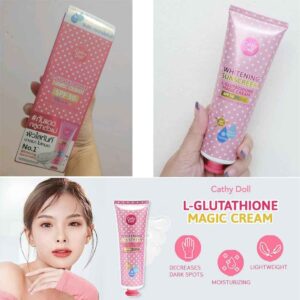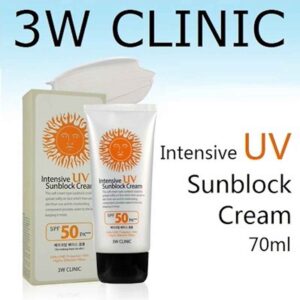The Ultimate Guide to Sunscreen: Protection, Types, and Application
Different Types of Sunscreen
Sunscreen vs. Sunblock:
There are two main types of UV Sunblock: Sunscreen and Sunblock.
Sunscreen works by filtering out the sun’s harmful UV rays. It is usually known as a chemical sunscreen.
It absorbs UV rays and turns them into heat. This type is good for daily use and feels light on the skin.
In contrast, sunblock acts like a shield, reflecting the rays away from your body.
It is also known as physical sunscreen or mineral sunscreen.
Sunblock contains zinc oxide or titanium dioxide. These ingredients provide protection against both UV-A and UV-B rays. Sunblock works well for sensitive skin. It is often reef-safe, making it environmentally friendly.
Mineral Sunscreen
Mineral sunscreen forms a barrier on your skin that reflects UV rays. It contains ingredients like zinc oxide and titanium dioxide. This type works well for sensitive skin. It is often reef-safe, making it a more environmentally friendly option.
Chemical Sunscreen
On the other hand, chemical sunscreen absorbs UV rays and turns them into heat. It feels light on the skin and is good for daily use.
It typically protects against UVB rays but may not always provide full protection against UVA rays unless it is labeled as broad-spectrum.
Water-Resistant Sunscreen
Additionally, water-resistant sunscreen does not necessarily reflect UV rays. But, it stays effective when you swim or sweat. It provides long-lasting protection. This makes it perfect for outdoor activities.
Moisturizing Sunscreens
Some sunscreens contain moisturizing ingredients. Aloe vera and glycerin are common in these formulas. They shield your skin while maintaining its hydration. These sunscreens are ideal for everyday use.
Sun Cream | Sunscreen Cream | Sunblock Cream
Sun Protection Factor (SPF) (UVB Protection): SPF tells you how well sunscreen protects against UVB rays. SPF 30 is enough for daily use. SPF 50 gives more protection for longer sun exposure.
Broad-spectrum Protection (UVA & UVB): Broad-spectrum sunscreen blocks both UVA and UVB rays. UVA rays penetrate deep into the skin and contribute to aging. UVB rays cause sunburn and can increase the risk of skin cancer.
In short, SPF focuses on UVB protection, while broad-spectrum covers both UVA and UVB protection.
Is a higher SPF better than a lower one?
According to dermatologists, you should use sunscreen with at least SPF 30.
It can protect you from 97% of harmful UVB rays.
However, if you used to spend a lot of time in the sun, you should opt for water-resistant sunscreen.
It should have an SPF of 60. This can give you a bit more protection.
Keep in mind that no sunscreen can block all UVB rays completely.
Also, a higher SPF doesn’t mean you can stay in the sun longer without reapplying. Whether you use a low or high SPF, always reapply sunscreen every two hours when outdoors.
Is Sunscreen good for your acne?
The sunscreens do not clog pores and helps prevent acne breakouts. It also reduces inflammation, redness, and scarring. Moreover, some good quality products contain zinc oxide and niacinamide. These ingredients have anti-inflammatory properties that help treat acne.
Non-comedogenic
The sunscreens are non-comedogenic and prevent clogged pores. They are ideal for acne-prone or sensitive skin and help reduce the risk of breakouts. By using a non-comedogenic product, you can avoid irritation and blemishes.
Lightweight and non-greasy:
The sunscreens are Lightweight and non-greasy.
They don’t leave a greasy residue. People with oily or combination skin like these. These products help reduce shine. They don’t add extra weight or oil to the skin.
Hypoallergenic:
The sunscreens are hypoallergenic. They reduce the risk of allergic reactions. They are gentle and safe for sensitive skin. These sunscreens help reduce irritation. They are ideal for individuals prone to allergies.
Fragrance-free: The sunscreens are Fragrance-free.
They do not contain added scents. They are ideal for sensitive skin and those prone to irritation. These products help reduce the risk of allergic reactions caused by fragrances.
Suitable for All Skin Types: It is compatible with all skin types.
Matte finish: They are Matte finish. They prevent a shiny appearance on the skin.
Additionally, they control excess oil, providing a smooth, non-greasy look. As a result, these products are ideal for people with oily or combination skin.
Contains antioxidants:
They include antioxidants. Antioxidants protect the skin from harmful free radicals. They help prevent damage caused by environmental factors like pollution and UV exposure. Common antioxidants include vitamins C and E, which support overall skin health.
How to use:
First, apply sunscreen generously to all exposed skin. Cover your face, neck, and hands. Do this 15 minutes before going outside. Then, reapply every two hours. Reapply especially after swimming or sweating.
Features
- SPF: Measures protection against UVB rays, higher SPF offers more
- Broad-spectrum Protection: Provides protection against both UVA and UVB rays
- Water-resistant: Stays effective when exposed to water or sweat
- Non-comedogenic: Won’t clog pores, good for acne-prone skin
- Hypoallergenic: Reduces allergic reactions, safe for sensitive skin.
- Fragrance-free: No added scents, ideal for sensitive or allergy-prone skin
- Lightweight and Non-greasy: Absorbs quickly, leaves no oily residue
- Matte Finish: Controls shine, making it ideal for oily or combination skin
- Contains Antioxidants: Includes antioxidants for extra skin protection
- Moisturizing: Hydrates skin while providing sun protection
Related Links
Secret Tone-up Sun Cream
Nature Plus Sunblock Cream
Magic Cream
#SunCream#Sunscreen#UVProtection#SPF#Sunblock#SunProtection#BroadSpectrum
#StayProtected#HealthySkin#SummerEssentials#SunSafety#ProtectYourSkin
-
500.00৳
650.00৳Olay Natural Aura Day Cream SPF 15-50g
500.00৳650.00৳ -
820.00৳
900.00৳Lotus Herbals Safe Sun UV Screen Matte Gel-100g
820.00৳900.00৳ -
1,050.00৳
1,250.00৳Neutrogena Ultra Sheer Dry-Touch Sunblock SPF 50+ PA+++-88ml
1,050.00৳1,250.00৳ -
450.00৳
650.00৳[Christian Dean] Secret Tone-up Sun Cream SPF50+/PA+++ 70ml
450.00৳650.00৳ -
1,150.00৳
1,200.00৳MISSHA Velvet Finish Sun Milk SPF50+ PA+++ 70ml(Stock Out)
1,150.00৳1,200.00৳ -
900.00৳
1,000.00৳MISSHA All Around Safe Block Aqua Sun Gel SPF50+/PA++++-50ml
900.00৳1,000.00৳ -
500.00৳
650.00৳Valencia Gio Nature Plus Sunblock Cream-70ml
500.00৳650.00৳ -
700.00৳
750.00৳Simple Vital Vitamin Day Cream-50ml
700.00৳750.00৳ -
450.00৳
500.00৳MAAILE NATURE PLUS Sun Block SPF 50+PA+++-70ml
450.00৳500.00৳ -
300.00৳
350.00৳UV 50 Eliza Helena Expert Protection Sun Cream-30g
300.00৳350.00৳ -
370.00৳
450.00৳Cathy Doll L-Glutathione Magic Cream SPF 50 PA+++-60ml
370.00৳450.00৳ -
500.00৳
850.00৳3W Clinic Intensive UV Sunblock Cream SPF 50+PA+++-70ml
500.00৳850.00৳

